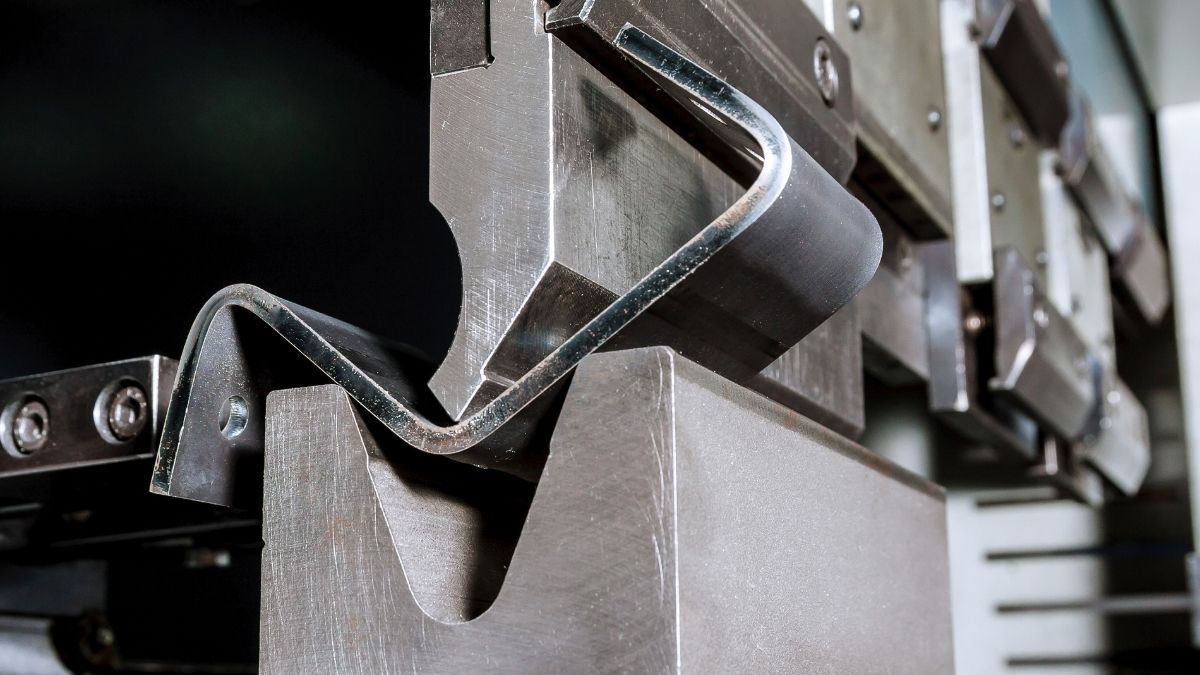In our modern society, metal plays a vital role in our daily lives. From the homes we live in and the buildings we work at to the vehicles that transport us everywhere and the devices that we spend our days glued to, just about everything has metal in it. There are many different ways to work metal into the forms we use. Here are four of the most common types of metal processing in fabrication shops.
Welding
Welding is the practice of linking two separate metal parts, and skilled professionals often accomplish it by applying heat to the joints they’re creating. Welding is interesting because it enjoys a large following as a hobby. People often consider welding as a doorway into metalworking, and it’s indeed responsible for the beginning of many people’s love for metal fabrication.
Cutting
One of the most common fabrication methods is cutting. This is the process of taking metal sheets and cutting them into smaller sections. There are many different tools that metal shops need to help cut the metal to the right specifications. People often cut metal before shaping it to keep the process simple. There are also occasions where someone uses a plasma torch or laser to cut pre-shaped bars or panels to meet exact specifications.
Machining
Machining is another one of the common types of metal processing that many industries practice. The process of machining is when a person removes material from the workpiece using machine tools so that they can shape it into a specific design. The majority of metal products and components require machining during production. There are many different tools machinists use, including drills, lathes, and sanders.
Casting
The last metal processing form on our list is casting, which is one of the oldest ones we still use today. It’s the process of pouring molten metal into molds and leaving it to solidify into the desired design. One of the best things about casting is that it makes complex shape-making much easier.










 Deering Estate
Deering Estate
 Massage Envy South Miami
Massage Envy South Miami
 Calla Blow Dry
Calla Blow Dry
 My Derma Clinic
My Derma Clinic
 Sushi Maki
Sushi Maki
 Sports Grill
Sports Grill
 The Healthy Kitchen
The Healthy Kitchen
 Golden Rule Seafood
Golden Rule Seafood
 Malanga Cuban Café
Malanga Cuban Café

 Kathleen Ballard
Kathleen Ballard
 Panter, Panter & Sampedro
Panter, Panter & Sampedro
 Vintage Liquors
Vintage Liquors
 The Dog from Ipanema
The Dog from Ipanema
 Rubinstein Family Chiropractic
Rubinstein Family Chiropractic
 Your Pet’s Best
Your Pet’s Best
 Indigo Republic
Indigo Republic




 ATR Luxury Homes
ATR Luxury Homes


 2112 Design Studio
2112 Design Studio
 Hamilton Fox & Company
Hamilton Fox & Company
 Creative Design Services
Creative Design Services
 Best Pest Professionals
Best Pest Professionals
 HD Tree Services
HD Tree Services
 Trinity Air Conditioning Company
Trinity Air Conditioning Company
 Cisca Construction & Development
Cisca Construction & Development
 Mosquito Joe
Mosquito Joe
 Cutler Bay Solar Solutions
Cutler Bay Solar Solutions


 Miami Royal Ballet & Dance
Miami Royal Ballet & Dance
 Christopher Columbus
Christopher Columbus
 Pineview Preschools
Pineview Preschools
 Westminster
Westminster
 Carrollton
Carrollton
 Lil’ Jungle
Lil’ Jungle
 Frost Science Museum
Frost Science Museum
 Palmer Trinity School
Palmer Trinity School
 South Florida Music
South Florida Music
 Pinecrest Orthodontics
Pinecrest Orthodontics
 Dr. Bob Pediatric Dentist
Dr. Bob Pediatric Dentist
 d.pediatrics
d.pediatrics
 South Miami Women’s Health
South Miami Women’s Health

 The Spot Barbershop
The Spot Barbershop
 My Derma Clinic
My Derma Clinic




 Miami Dance Project
Miami Dance Project

 Rubinstein Family Chiropractic
Rubinstein Family Chiropractic
 Indigo Republic
Indigo Republic

 Safes Universe
Safes Universe
 Vintage Liquors
Vintage Liquors
 Evenings Delight
Evenings Delight





 Atchana’s Homegrown Thai
Atchana’s Homegrown Thai
 Baptist Health South Florida
Baptist Health South Florida

 Laser Eye Center of Miami
Laser Eye Center of Miami
 Visiting Angels
Visiting Angels
 OpusCare of South Florida
OpusCare of South Florida

 Your Pet’s Best
Your Pet’s Best





 HD Tree Services
HD Tree Services
 Hamilton Fox & Company
Hamilton Fox & Company


 Creative Design Services
Creative Design Services